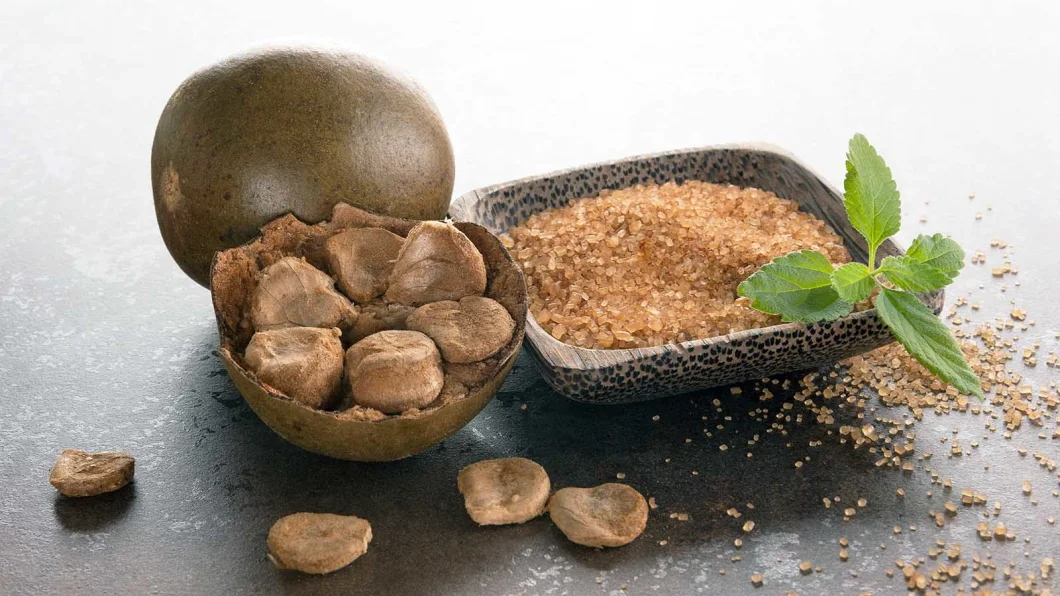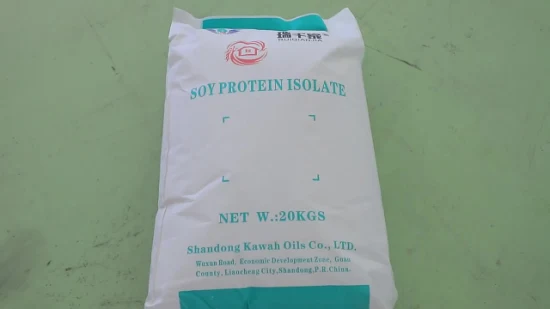
Organic Monk Fruit Extract Powder Natural Herbal
1. Hypoglycemic effect Luo Han Guo extract has a very high sweetness, but the heat is very low, after consumption will n;
Basic Info
| Model NO. | 10kg/carton |
| Transport Package | Paper |
| Specification | 10kg/carton |
| Trademark | Muzhi |
| Origin | China |
| Production Capacity | 50000pices/Years |
Product Description
1. Hypoglycemic effectLuo Han Guo extract has a very high sweetness, but the heat is very low, after consumption will not cause the body's blood sugar rise. This function has attracted a lot of attention from researchers. A single oral dose of 30% rooiboside 200 mg/kg was given to volunteer subjects, which is 20 times the normal food supplementation (10 mg/kg). By comparing the blood glucose levels of the subjects before and after administration, the difference in blood glucose levels before and after was minimal, indicating that the conversion of rosmarinic acid into glucose in the body was not significant.
2. Antioxidant effect
Free radicals are in free state in the body and induced lipid peroxidation is closely related to the occurrence of many diseases. In recent years, studies have found that Luo Han Guo extract can scavenge free radicals and resist lipid peroxidation. The effects of rosmarinic acid on free radical scavenging and anti-lipid peroxidation were analyzed by anti-superoxide anion kit method, colorimetric method and D-deoxyribose method. The oxidative effects were protective against peroxidative damage to liver tissue induced by Fe2 + and H2O2, indicating that rosmarinic acid saponins can effectively scavenge free radicals.
3. Hepatoprotection
Luo Han Guo extract has hepatoprotective effect in rats and mice as experimental subjects. Luo Han Guo saponin was given to mice by gavage once a day for 7 days. One hour after the latter gavage, rats in the gavage and model groups were injected intraperitoneally with 0.08% CCl4. 12 hours after modeling, blood was collected to determine the levels of alanine aminotransferase (ALT) and aspartate aminotransferase (AST) in the serum of mice and to observe the pathological changes in liver tissue. Rats were continuously simulated with CCl4 for eight weeks to form a rat model of chronic liver injury. The effects of rosmarinic acid saponins on serum ALT and AST, hyaluronic acid (HA), type III collagen pro-amino-terminal peptide (PIIINP), hydroxyproline (Hyp) content, liver tissue superoxide dismutase (SOD), glutathione (GSH-Px)) and malondialdehyde (MDA) content were observed in rats. It was found that rosmarinic acid reduced the activity of ALT and AST in the serum of mice with acute liver injury and significantly decreased the degree of pathological changes in liver tissue. For chronic liver injury induced by CCl4, rosmarinic acid glycosides reduced the activity of ALT and AST in serum. It decreased the levels of HA, PIIINP and HyP; increased the activities of SOD, GSH-Px in liver tissues; and decreased the levels of MDA in liver tissues. This suggests that rosmarinic acid has a protective effect on CCl4-induced acute liver injury in mice. It has preventive and therapeutic effects on carbon tetrachloride-induced chronic liver injury in rats, and has certain anti-liver fibrosis effects.
4. Hypolipidemic effect
The sweetness of Luo Han Guo extract is not sugar, and using it as a sweetener can reduce the intake of glucose. As long as the sugar intake is controlled, it can inhibit the synthesis of subcutaneous fat and promote lipid metabolism, thus removing subcutaneous fat and achieving weight loss. Rats were randomly divided into a blank group, a model control group and an experimental group. The experimental group was gavaged with rosmarinic acid, and the blank group and model control group were gavaged with distilled water for 28 days. During the feeding, the body weight and food intake of the rats were recorded weekly. At the end of the experiment, body length was measured. Body fat was obtained by dissection and weighed to calculate the fat/body ratio. The results showed that the test group lost 11.9% of body weight, reduced LDL-C cholesterol by 37.8%, serum triglycerides by 38.9%, body fat by 35.7%, and total cholesterol by 21.2%, indicating that rosmarinic acid had a significant fat-reducing and weight-reducing effect.

You may also like
Send inquiry
Send now




